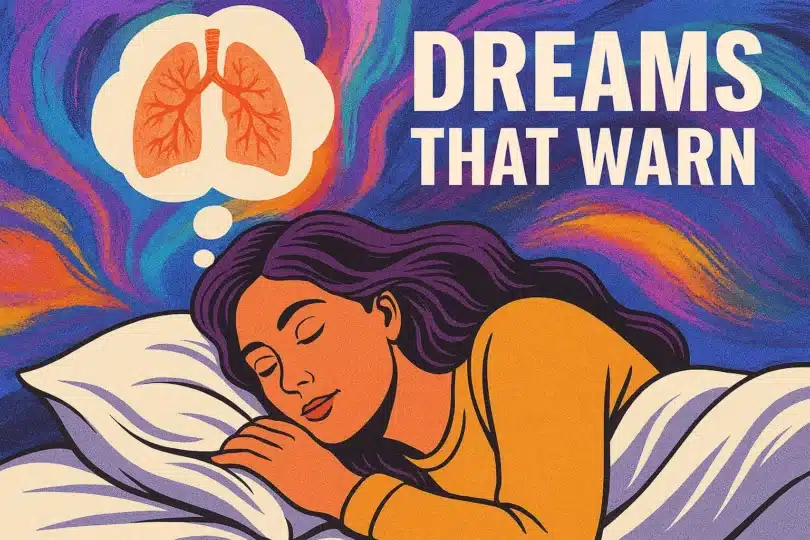Dreams have always fascinated humanity — vivid, strange, sometimes prophetic. But modern neuroscience is uncovering a deeper truth: in some cases, our dreams may reflect early signs of disease, long before symptoms appear in waking life.So, Can dreams predict illness?
This isn’t mysticism. It’s biology. The same brain that regulates sleep also manages immune response, hormonal balance, and neural signaling — so when the body begins to change, dreams often change with it.
When Dreams Become Data
The brain doesn’t sleep passively; it’s constantly scanning, repairing, and integrating information from the body.
In people with certain neurological or inflammatory conditions, this nightly process becomes altered — producing dreams that are more vivid, emotional, or physically active.
One of the clearest examples comes from Parkinson’s disease. Decades of research show that people who later develop Parkinson’s often experience violent or intense dreams, sometimes acting them out physically in bed.
This is caused by REM Sleep Behavior Disorder (RBD) — a breakdown of the brain’s normal muscle paralysis during REM sleep. RBD can appear years before Parkinson’s or other synuclein-related disorders, making it one of the earliest detectable clues.
Beyond the Brain: Fever, Hormones, and the Immune System
Dreams also shift during infections, autoimmune conditions, and hormonal changes.
During fever, cytokines — molecules that signal immune activity — cross into the brain and disrupt neurotransmitters like dopamine and serotonin. The result is what we call “fever dreams”: surreal, fragmented, and often frightening experiences.
Similar effects occur in chronic inflammation or hormonal imbalance. Women experiencing menopause, thyroid shifts, or adrenal fatigue often report vivid, emotionally charged dreams.
In these cases, the dreams aren’t premonitions — they’re biological mirrors reflecting what the body is already experiencing.
Can Dreams Predict Illness – A New Diagnostic Frontier
Researchers are now investigating how dream content might serve as a non-invasive health indicator.
Using sleep EEGs, fMRI scans, and dream journals, scientists can map how physical changes — like early Alzheimer’s pathology or immune inflammation — alter brainwave patterns during REM sleep.
In one study, patients with early dementia had lower REM activity and flatter emotional dream content years before measurable memory loss. Another found that patients with autoimmune flare-ups experienced recurrent symbolic dreams — like being chased or trapped — at times of high inflammation.
While it’s still too early for clinical use, dream tracking may one day join wearable biometrics as part of preventive medicine — a way for your brain to quietly whisper, “something’s changing.”
The Meaning Beneath the Metaphor
Even outside pathology, dreams act as an internal monitor.
Stress, nutrient deficiencies, or even dehydration can alter dream recall and tone.
Recurring themes — falling, suffocation, isolation — may arise when the body struggles with oxygen flow, anxiety hormones, or fatigue.
Interpreting these signals doesn’t mean reading prophecies; it means observing biology through imagination. Dream science reminds us that mind and body are not separate systems — they’re one continuous organism, communicating through every layer of experience.
The Limits of Prediction
Of course, not every nightmare predicts disease. Most dream changes are temporary and harmless. But consistent shifts — recurring violent dreams, sleep disturbances, or acting out dreams physically — warrant medical evaluation.
The key is not to fear your dreams, but to listen to them. They may reveal patterns your waking mind overlooks.
Can Dreams Predict Illness – Conclusion
Dreams can’t see the future, but they can sense the present. They translate neurological and physiological signals into imagery — sometimes beautiful, sometimes alarming.
In the years ahead, tracking dream content might become a tool for early detection, helping doctors identify brain and immune changes long before blood tests or scans can.
So the next time your dreams feel unusually vivid, emotional, or strange, don’t dismiss them as random. They might be your body’s first language — whispering a message your conscious mind has yet to hear.

